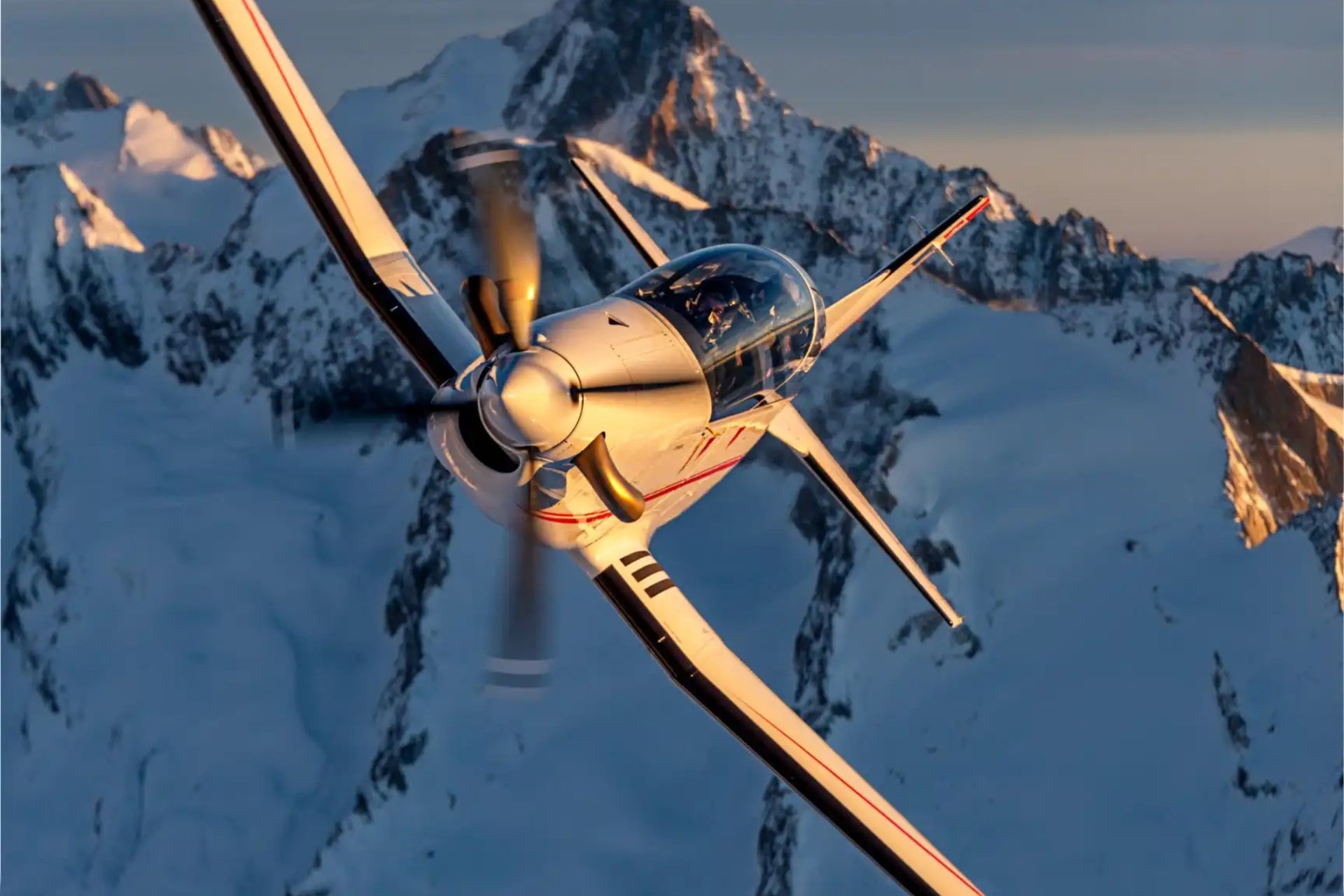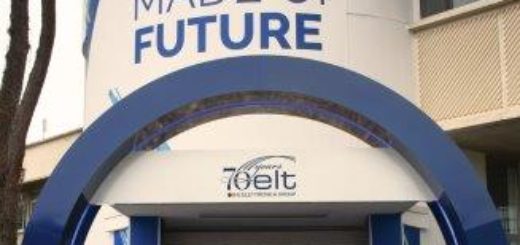French Air and Space Force Adopts Pilatus PC-7 MKX Aircrafts for Next-Generation Pilot Training

{loadposition bannertop}
{loadposition sidebarpub}
The French Air and Space Force is strengthening its pilot training program by selecting the Pilatus PC-7 MKX, a new-generation training aircraft designed for basic military pilot instruction. This decision was made by the French Directorate General of Armaments (DGA), which chose this aircraft as part of its aviation training program. The fleet of 22 PC-7 MKX aircraft is expected to be delivered by 2027, marking a significant step in the evolution of the French training system.
Follow Army Recognition on Google News at this link
The PC-7 MKX can also be adapted for surveillance or reconnaissance missions but does not include integrated armament by default (Picture source: Pilatus)
At the beginning of 2025, Babcock France was awarded the “Mentor 2” contract, a 17-year agreement aimed at providing training services based on the PC-7 MKX. In addition to the aircraft, this program includes ground-based training tools, developed in part with the French industry. Pilatus will also supply simulators, computer-assisted training solutions, as well as mission planning and debriefing systems, ensuring an effective and modern training framework.
The Pilatus PC-7 MKX is a next-generation military training aircraft designed for basic pilot instruction. Based on the proven structure of the PC-7 MkII, it features notable improvements, including advanced avionics integrating the Garmin G3000 PRIME, multifunctional touchscreens, and a Head-Up Display (HUD). Its optimized aerodynamics, with a refined propeller cone and winglets, enhance flight efficiency. The aircraft is equipped with Martin-Baker ejection seats and a redesigned air conditioning system for improved crew comfort. Built to withstand extreme conditions, particularly in hot climates, it offers a realistic and comprehensive training experience through an advanced ground-based training system that includes simulators and augmented, virtual, and mixed reality technologies.
Primarily intended for training, the PC-7 MKX can also be adapted for surveillance or reconnaissance missions but does not include integrated armament by default. Its aluminum structure provides resilience to frequent hard landings during initial training phases. It is particularly valued for its flight characteristics, which enable student pilots to develop essential skills before transitioning to more complex aircraft. Used by several air forces, including those of France and the Netherlands, it plays a key role in military pilot training, ensuring effective preparation for future operational missions.
Since 2018, the French Air and Space Force has been training military pilots at Air Base 709 in Cognac-Châteaubernard with Pilatus PC-21 aircraft, which form the core of advanced training. The current fleet includes 26 PC-21 aircraft acquired in two separate batches. The introduction of the PC-7 MKX will standardize the training program, with French pilots now being trained exclusively on Pilatus aircraft at all stages of their instruction.
The Pilatus PC-7 MKX is a modernized version of the PC-7 MkII. It stands out with a redesigned cockpit equipped with Garmin G3000 PRIME avionics and a Head-Up Display (HUD), providing an optimal learning environment from the earliest training phases. This advanced navigation and control system results from a collaboration with Garmin, integrating the G3000 PRIME technology into a military training aircraft for the first time. This integration allows for a customizable user interface tailored to the specific needs of air forces while ensuring strong continuity between the PC-7 MKX and the PC-21.
Pilatus CEO Markus Bucher expressed satisfaction with this new collaboration with France, emphasizing the renewed trust of the French Air and Space Force in the company’s training solutions. He highlighted the importance of the associated ground-based training system, which includes advanced simulators designed to ensure cost-effective military training.
Additionally, Ioannis Papachristofilou, Vice President of Government Aviation at Pilatus, pointed out that France and the Netherlands are the first two countries to introduce the PC-7 MKX into service. This collaboration with Babcock France aims to ensure the success of the training program, building on the experience gained with the PC-21.
This development comes during a period of growth for Pilatus, which recorded a 10.5% increase in revenue in 2024, reaching 1.63 billion Swiss francs (1.84 billion dollars), along with a 44.9% rise in order intake, amounting to 2.19 billion Swiss francs. The introduction of the PC-7 MKX within the French Air and Space Force confirms Pilatus’ position as a key player in the military aviation training sector.

{loadposition bannertop}
{loadposition sidebarpub}
The French Air and Space Force is strengthening its pilot training program by selecting the Pilatus PC-7 MKX, a new-generation training aircraft designed for basic military pilot instruction. This decision was made by the French Directorate General of Armaments (DGA), which chose this aircraft as part of its aviation training program. The fleet of 22 PC-7 MKX aircraft is expected to be delivered by 2027, marking a significant step in the evolution of the French training system.
The PC-7 MKX can also be adapted for surveillance or reconnaissance missions but does not include integrated armament by default (Picture source: Pilatus)
At the beginning of 2025, Babcock France was awarded the “Mentor 2” contract, a 17-year agreement aimed at providing training services based on the PC-7 MKX. In addition to the aircraft, this program includes ground-based training tools, developed in part with the French industry. Pilatus will also supply simulators, computer-assisted training solutions, as well as mission planning and debriefing systems, ensuring an effective and modern training framework.
The Pilatus PC-7 MKX is a next-generation military training aircraft designed for basic pilot instruction. Based on the proven structure of the PC-7 MkII, it features notable improvements, including advanced avionics integrating the Garmin G3000 PRIME, multifunctional touchscreens, and a Head-Up Display (HUD). Its optimized aerodynamics, with a refined propeller cone and winglets, enhance flight efficiency. The aircraft is equipped with Martin-Baker ejection seats and a redesigned air conditioning system for improved crew comfort. Built to withstand extreme conditions, particularly in hot climates, it offers a realistic and comprehensive training experience through an advanced ground-based training system that includes simulators and augmented, virtual, and mixed reality technologies.
Primarily intended for training, the PC-7 MKX can also be adapted for surveillance or reconnaissance missions but does not include integrated armament by default. Its aluminum structure provides resilience to frequent hard landings during initial training phases. It is particularly valued for its flight characteristics, which enable student pilots to develop essential skills before transitioning to more complex aircraft. Used by several air forces, including those of France and the Netherlands, it plays a key role in military pilot training, ensuring effective preparation for future operational missions.
Since 2018, the French Air and Space Force has been training military pilots at Air Base 709 in Cognac-Châteaubernard with Pilatus PC-21 aircraft, which form the core of advanced training. The current fleet includes 26 PC-21 aircraft acquired in two separate batches. The introduction of the PC-7 MKX will standardize the training program, with French pilots now being trained exclusively on Pilatus aircraft at all stages of their instruction.
The Pilatus PC-7 MKX is a modernized version of the PC-7 MkII. It stands out with a redesigned cockpit equipped with Garmin G3000 PRIME avionics and a Head-Up Display (HUD), providing an optimal learning environment from the earliest training phases. This advanced navigation and control system results from a collaboration with Garmin, integrating the G3000 PRIME technology into a military training aircraft for the first time. This integration allows for a customizable user interface tailored to the specific needs of air forces while ensuring strong continuity between the PC-7 MKX and the PC-21.
Pilatus CEO Markus Bucher expressed satisfaction with this new collaboration with France, emphasizing the renewed trust of the French Air and Space Force in the company’s training solutions. He highlighted the importance of the associated ground-based training system, which includes advanced simulators designed to ensure cost-effective military training.
Additionally, Ioannis Papachristofilou, Vice President of Government Aviation at Pilatus, pointed out that France and the Netherlands are the first two countries to introduce the PC-7 MKX into service. This collaboration with Babcock France aims to ensure the success of the training program, building on the experience gained with the PC-21.
This development comes during a period of growth for Pilatus, which recorded a 10.5% increase in revenue in 2024, reaching 1.63 billion Swiss francs (1.84 billion dollars), along with a 44.9% rise in order intake, amounting to 2.19 billion Swiss francs. The introduction of the PC-7 MKX within the French Air and Space Force confirms Pilatus’ position as a key player in the military aviation training sector.





